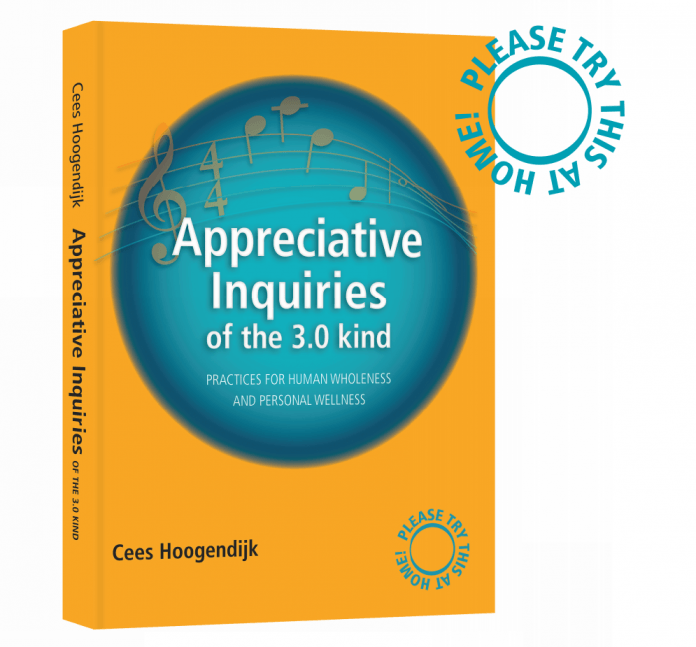[from book part 4 – SOCIAL CONSTRUCTIONISM]
It’s time to introduce the 3.0 kind. Basic ingredient: asynchronous reciprocity. Huh?
In 2008, when my book Kracht zonder Macht was to be presented to the public, my publisher Paul Quist, expecting about 100 people (family and friends) suggested a meeting room in a place called Seats2Meet (which I had never heard of before). I didn’t only get a room, but also a website www.krachtzondermacht.nl: all the 100 visitors of my book presentation became member of the digital community, created for me by the people of Seats2Meet. A co-creating relationship started, and is still going strong. When and where I can, I will check into a S2M location. You can live, meet, work, rest and develop at the same time, because of the special atmosphere and the explicit invitation to meet new people. And all this – the seat including wifi, coffee and lunch – for free, or let’s say in return for ‘social capital’: your willingness to share and meet others.
The founder of this enterprise is Ronald van den Hoff, a visionary on social entrepreneurship and how to enable and enforce it. We became good friends in 2011 after he asked me to be the editor of his ‘magnus opus’, the book Society 3.0. Starting with 1200 pages of content, and stripping it down to one third… you can call that friendship. In 2014 the book goes international in an English translation titled ‘Mastering the Global Transition on Our Way to Society 3.0’. Besides criticism on the existing national governance (1.0), and lively review of the consequences of the upcoming internet (2.0), the book suggests a certain behaviour (3.0) of us citizens and if we are willing to build a sustainable society together. We should leave the idea of transactions behind, of give and take, and adopt a way of inter-relational being called asynchronous reciprocity: “let me help you, and maybe at some point and from an unknown direction, someone appears and will help me”.
My conviction is that Appreciative Inquiry contributes to building and mastering Society 3.0. Ronald invited me to state this in his book. You can find my plea for 3.0 behavior in section 14.3 of Society 3.0. Furthermore, shouldn’t AI be added to the set of 21st Century Skills?
In short: referring to internet activities, 1.0 was the monologue type of communicating: using your website as a shop window. When we became interactive, we called it 2.0: we were able to give a comment on someone’s blog. What Ronald means by 3.0 is that we co-create value. We enforce each other. We keep on finding out which connections can help us and society further. In terms of economic value: we just don’t rely anymore on the ‘old school, dinosaur companies’; we build social enterprises around an appealing idea and take off. For the better.
Don’t get me wrong. There’s a lot of old school entrepreneurship going on on the modern Internet. Too often, we see shareholders, not stakeholders. In my interpretation, however, the label 3.0 stands for adding sustainable value, and that’s more a social than a financial thing. Let’s focus on the social opportunities of digital and personal interaction, because this is what the author of Society 3.0 is suggesting. Be a social entrepreneur, whether you have job or are self employed. Let us support Ronald van den Hoff with his valuable intentions.
When and where did you experience 3.0 behavior?
How about examples of your own 3.0 talents?
What would you like to contribute to Society 3.0?
You’ve just read one of the 100 chapters of my book Appreciative Inquiries of the 3.0 Kind. Find out more (and a special pre-ordering offer) on www.appreciativeinquiries.eu.












